
Lambaréné: The Heartbeat of Gabon's Hinterland
Nestled along the banks of the Ogooué River, Lambaréné is a charming city in Gabon that offers a unique blend of natural beauty and cultural heritage. Famous for its picturesque landscapes and vibrant biodiversity, this city is a haven for nature lovers and adventure seekers alike. The lush rainforests and serene riverbanks provide a perfect backdrop for outdoor activities such as bird watching, fishing, and guided river tours. Lambaréné is also home to the renowned Albert Schweitzer Hospital, established by the Nobel Peace Prize laureate Dr. Albert Schweitzer in 1913. The hospital, which still functions today, serves as both a medical facility and a museum, offering visitors a glimpse into the life and work of Dr. Schweitzer. The city's rich history is further reflected in its traditional Gabonese architecture and local markets, where visitors can immerse themselves in the vibrant culture and hospitality of the locals. Whether you are exploring the fascinating ecosystems of the surrounding rainforest or delving into the city's storied past, Lambaréné promises an unforgettable experience. Its tranquil ambiance and warm, welcoming community make it a perfect retreat for those looking to escape the hustle and bustle of urban life.
Local tips in Lambaréné
- Visit the Albert Schweitzer Hospital to learn about the Nobel laureate's life and contributions.
- Take a guided boat tour on the Ogooué River for stunning views and wildlife sightings.
- Explore local markets to experience Gabonese culture and purchase unique handmade crafts.
- Pack insect repellent and lightweight clothing for comfort in the tropical climate.
- Hire a local guide for rainforest excursions to ensure safety and enhance your experience.
Lambaréné: The Heartbeat of Gabon's Hinterland
Nestled along the banks of the Ogooué River, Lambaréné is a charming city in Gabon that offers a unique blend of natural beauty and cultural heritage. Famous for its picturesque landscapes and vibrant biodiversity, this city is a haven for nature lovers and adventure seekers alike. The lush rainforests and serene riverbanks provide a perfect backdrop for outdoor activities such as bird watching, fishing, and guided river tours. Lambaréné is also home to the renowned Albert Schweitzer Hospital, established by the Nobel Peace Prize laureate Dr. Albert Schweitzer in 1913. The hospital, which still functions today, serves as both a medical facility and a museum, offering visitors a glimpse into the life and work of Dr. Schweitzer. The city's rich history is further reflected in its traditional Gabonese architecture and local markets, where visitors can immerse themselves in the vibrant culture and hospitality of the locals. Whether you are exploring the fascinating ecosystems of the surrounding rainforest or delving into the city's storied past, Lambaréné promises an unforgettable experience. Its tranquil ambiance and warm, welcoming community make it a perfect retreat for those looking to escape the hustle and bustle of urban life.
When is the best time to go to Lambaréné?
Iconic landmarks you can’t miss
La Baie des Tortues Luth Hotel
Discover the tranquility of La Baie des Tortues Luth Hotel, your gateway to the natural beauty of Parc National de Pongara in Libreville, Gabon.

Church of St. Michael Nkembo
Explore the architectural beauty and spiritual essence of the Church of St. Michael Nkembo in Libreville, a must-visit landmark for cultural enthusiasts.
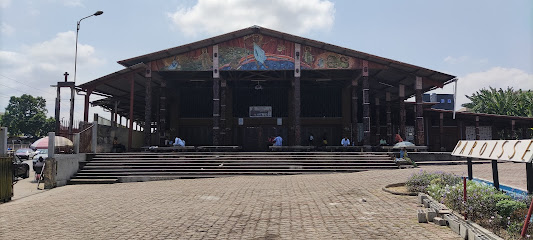
Cathédrale Sainte Marie
Explore the architectural beauty and serene atmosphere of Cathédrale Sainte Marie, a pivotal landmark in Libreville, Gabon's vibrant capital city.
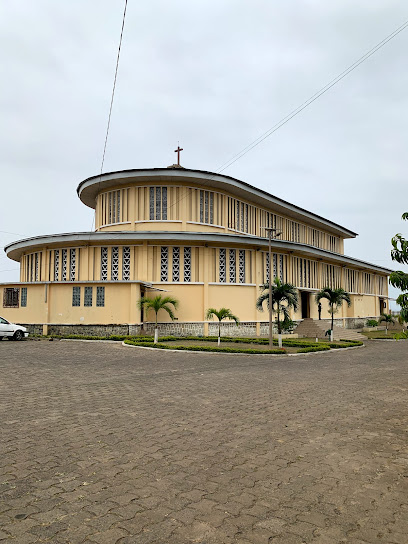
Lopé National Park
Explore the diverse ecosystem and breathtaking landscapes of Lopé National Park, a UNESCO World Heritage site in Gabon, perfect for nature lovers and adventure seekers.
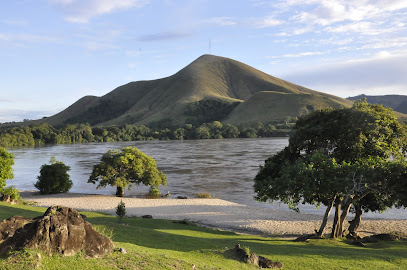
Ogooue Palace
Experience the charm of Gabon at Ogooue Palace, a cozy hotel in Lambarene that blends comfort with rich cultural heritage.

Hassan II Mosquee
Discover the architectural marvel of Hassan II Mosque in Libreville, a serene oasis showcasing the rich Islamic heritage of Gabon.
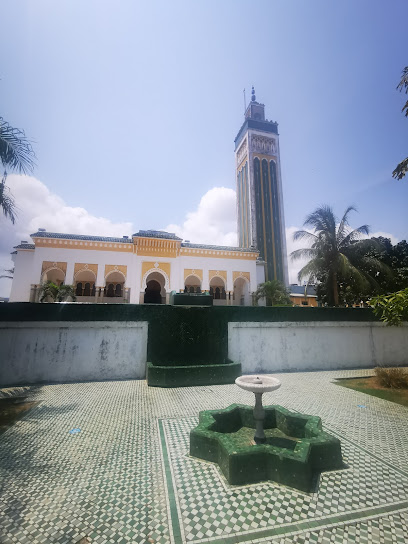
Akouango Beach
Experience the coastal charm and culinary delights of Akouango Beach in Libreville, where fresh seafood meets breathtaking ocean views.
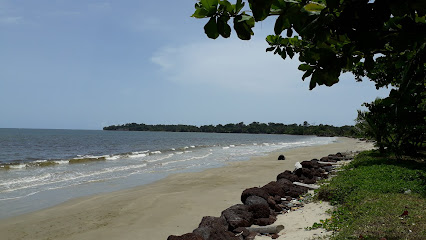
Notre Dame de Lourdes
Discover the serene beauty of Notre Dame de Lourdes in Libreville, a stunning Catholic church that embodies spiritual heritage and architectural elegance.
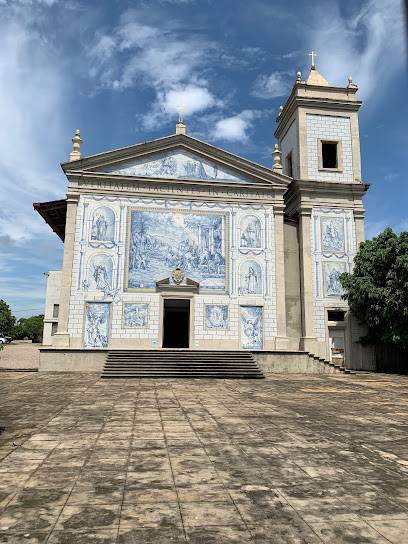
COMMUNAUTÉ DES SOEURS DE L'IMMACULÉE CONCEPTION
Discover serenity and cultural richness at Communauté des Sœurs de l'Immaculée Conception, a unique guest house in Lambarene, Gabon.
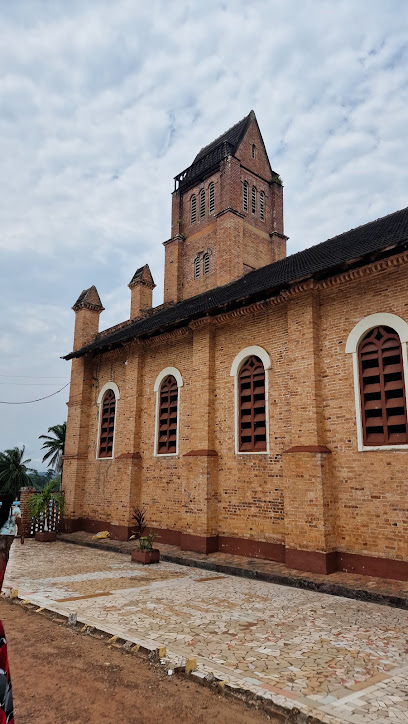
Pongara Lodge
Discover the tranquil beauty of Pongara Lodge in Pointe Pongara, Gabon, a perfect blend of luxury and nature for the discerning traveler.
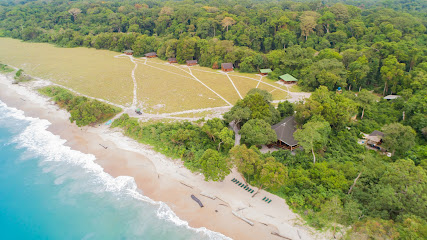
Lambaréné Airport
Discover the serene beauty of Gabon through Lambaréné Airport, your gateway to unique culture and breathtaking landscapes in Central Africa.
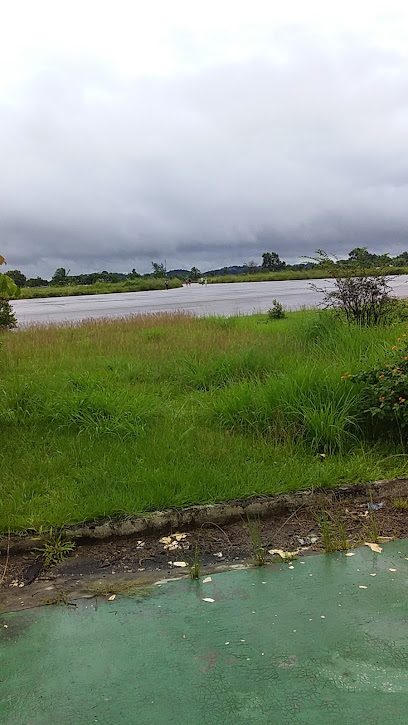
Tsam Tsam
Explore Tsam Tsam in Emvouhna: A mesmerizing blend of Gabonese culture and breathtaking natural beauty awaits you.

Lambarene
Explore Lambarene, Gabon – a tranquil town rich in culture, history, and as a gateway to breathtaking natural parks and wildlife adventures.
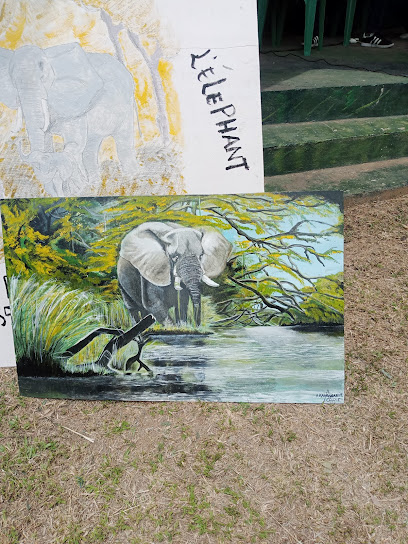
Equator Sign
Explore the Equator Sign in Gabon, a fascinating monument marking the center of the Earth, offering unique photo opportunities and cultural insights.
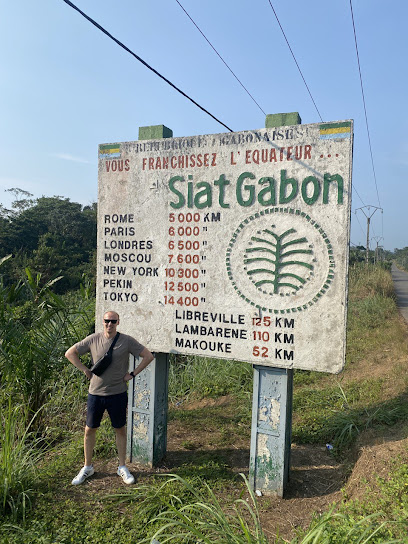
Clark
Experience the tranquil beauty and spiritual significance of Clark Shrine in Libreville, a serene escape into Gabon's cultural heritage.
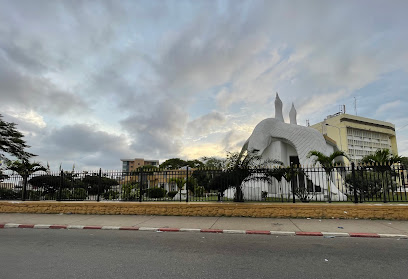
Unmissable attractions to see
National Museum of Arts, Rites and Traditions of Gabon
Explore Gabon's vibrant cultural heritage through its traditional arts, rites, and historical artifacts at the National Museum in Libreville.
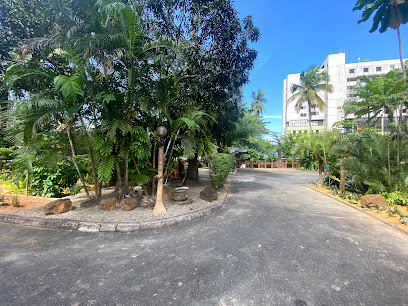
Tsam Tsam
Discover Tsam Tsam: Gabon's ecotourism jewel offering cultural immersion and breathtaking natural beauty on the serene Lake Oguemoué.
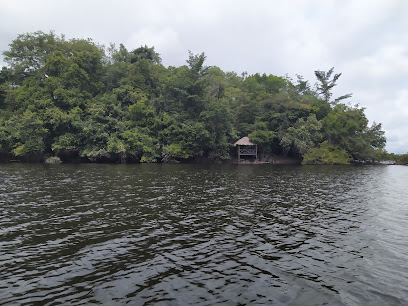
Essential places to dine
La Mangrove
Experience authentic Gabonese cuisine at La Mangrove in Lambarene - where every dish tells a story of rich local flavors.
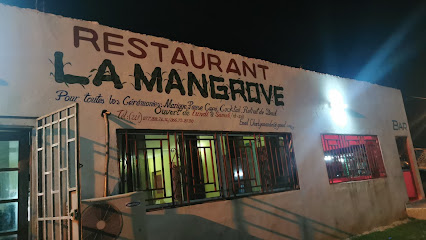
L'escale du pont
Experience the rich flavors of Gabonese cuisine at L'escale du pont - your culinary haven in Lambarene.
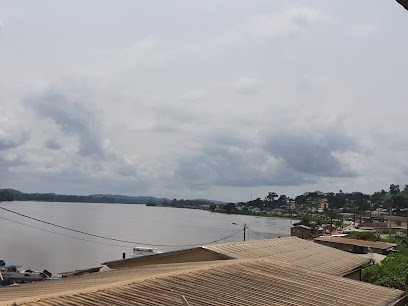
Le Carpe Diem Motel Bar Restaurant
Experience authentic Gabonese cuisine at Le Carpe Diem Motel Bar Restaurant in Lambarene - a culinary gem for every traveler.
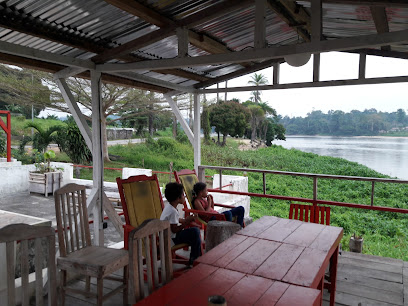
charmed délice
Discover the flavors of Lambaréné at Charmed Délice – an exquisite restaurant offering local cuisine in an inviting atmosphere.
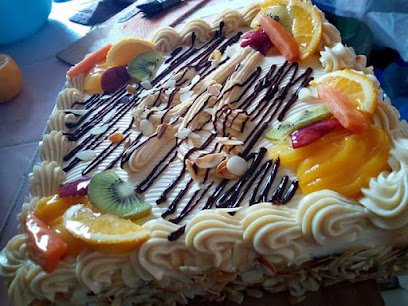
Restaurant Le Grain de Seneve
Experience exquisite local cuisine at Restaurant Le Grain de Seneve in Lambarene—where culinary artistry meets Gabonese flavors.
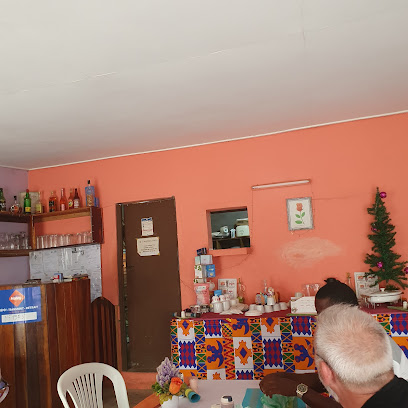
Cafeteria Nayerissa Aminou
Discover authentic Gabonese cuisine at Cafeteria Nayerissa Aminou in Lambarene, where local flavors meet warm hospitality.
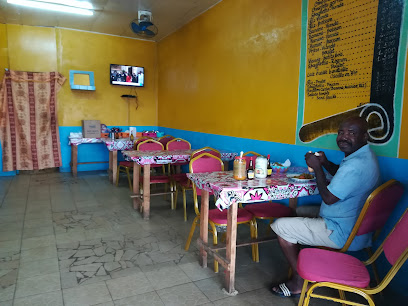
Restaurant la joie d'être ensemble
Experience authentic Gabonese cuisine at Restaurant La Joie d'Être Ensemble in Lambarene—where every meal is a celebration of local flavors.

MONDA NEWILO Gô Mpikagha
Savor authentic Gabonese cuisine at MONDA NEWILO Gô Mpikagha in Lambarene - A culinary experience steeped in tradition and flavor.
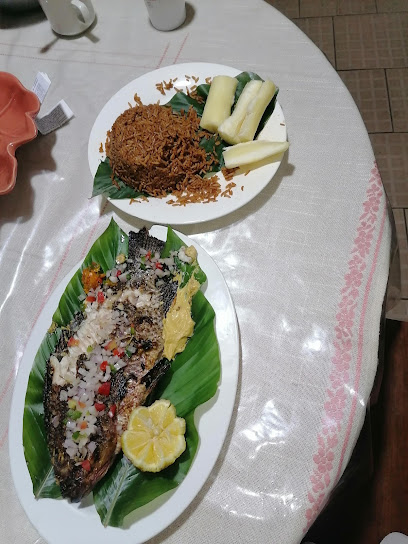
G'avilo Village
Discover authentic Gabonese cuisine at G'avilo Village in Lambarene - where local flavors come alive in a warm and inviting atmosphere.
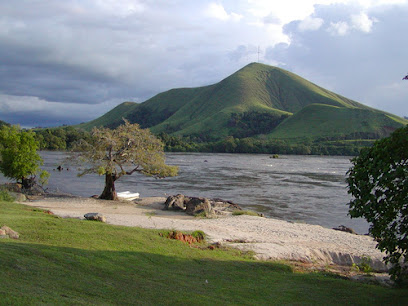
Le petit bungalow au bout du pont- grillades
Discover the authentic taste of grilled cuisine at Le Petit Bungalow au Bout du Pont in Lambaréné, where local flavors meet stunning scenery.

Mik'ly Food
Experience the vibrant taste of fast food at Mik'ly Food in Lambarene – perfect for travelers seeking quick bites with great flavors.
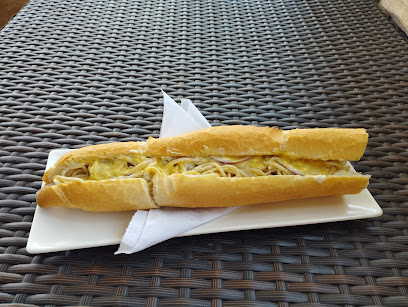
Restaurant traditionnel
Experience authentic flavors at this traditional restaurant, where every dish tells a story of local heritage and culinary excellence.
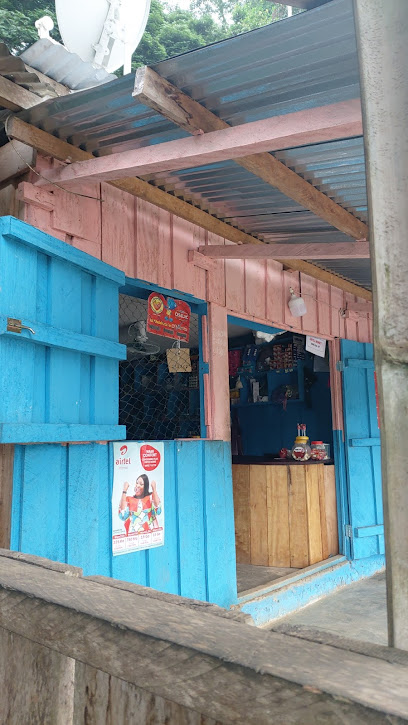
Les délices de l'Ogooué
Discover authentic Gabonese flavors at Les délices de l'Ogooué in Lambarene – where every dish tells a story.
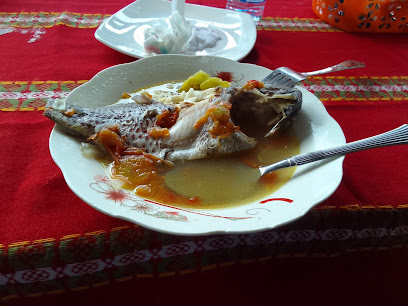
Chez Tantine Olga
Experience authentic Gabonese cuisine at Chez Tantine Olga in Lambarene, where every dish reflects local flavors and traditions.

Bar fast-food NGOMBI
Experience the vibrant flavors of Gabonese fast food at Bar fast-food NGOMBI in Lambarene - where quick bites meet local culinary traditions.

Markets, malls and hidden boutiques
On isaac Service Station (ENGEN)
Discover the heart of Lambarene at On Isaac Service Station, your essential stop for fuel and local culture in Gabon.
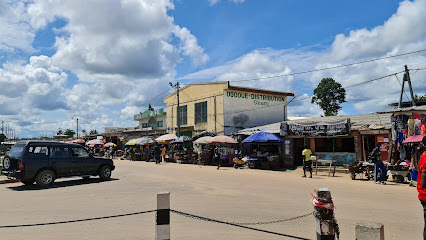
Debarcadere D'issac
Explore the vibrant flavors of Lambarene at Debarcadere D'issac, your go-to supermarket for local and international groceries.
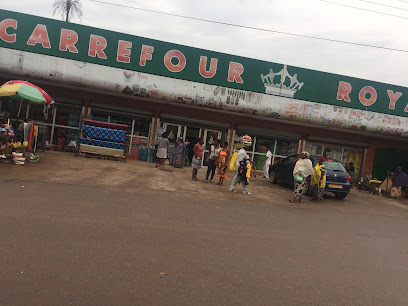
Les J. B.
Discover the essence of Lambarene at Les J. B., where delightful coffee and a welcoming atmosphere await you.
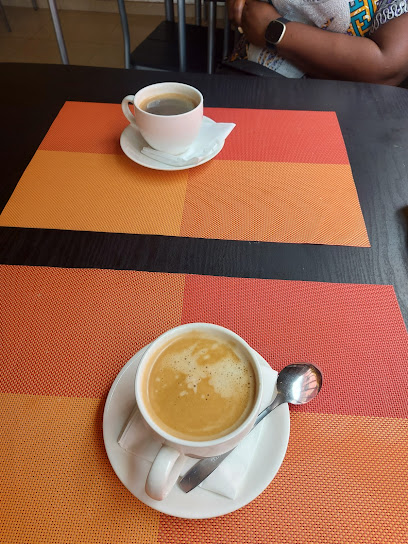
Enami Shop
Explore Enami Shop in Port-Gentil for exquisite clothing collections for the whole family, blending style, quality, and local charm.

Supérette de préférence
Experience local life at Supérette de Préférence, a vibrant supermarket in Lambaréné offering fresh produce and local delicacies.
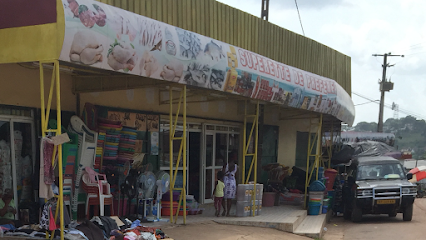
Cecado
Explore Cecado in Lambarene: A vibrant supermarket offering local flavors and everyday essentials amidst the charm of Gabon.
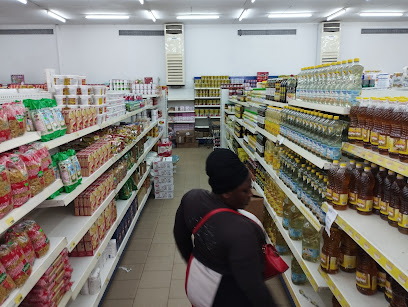
La Payotte (marché & gare routière)
Immerse yourself in the vibrant culture of Gabon at La Payotte, Lambarene's bustling produce market filled with fresh flavors and local craftsmanship.

GABON shopping
Uncover unique fashion and vibrant styles at the clothing stores in Libreville, Gabon, and immerse yourself in the local culture.
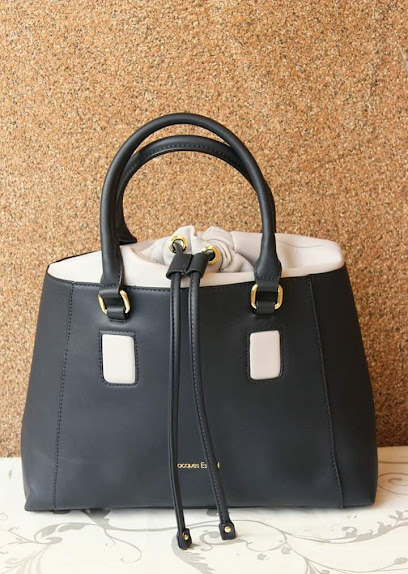
Carrefour des matériaux
Experience the heart of Lambarene at Carrefour des Matériaux, where local flavors and friendly faces await travelers seeking a delightful truck stop.

Boulangerie Pâtisserie de l'Ogooué d'Isaac
Experience the essence of French baking at Boulangerie Pâtisserie de l'Ogooué d'Isaac in Lambarene, where every bite is a delight.
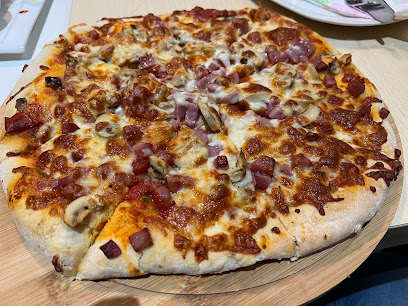
Belle & bien Shop
Explore the vibrant Belle & Bien Shop in Libreville for unique clothing, beauty supplies, and exquisite leather goods that capture the spirit of Gabon.

Marché municipal de Lambaréné
Experience the vibrant culture of Lambaréné at the Marché Municipal, where fresh produce, handmade crafts, and local delicacies await every visitor.

Cecado d'isaac
Explore the vibrant flavors of Gabon at Cecado d'Isaac, Lambarene's premier supermarket for local and international products.
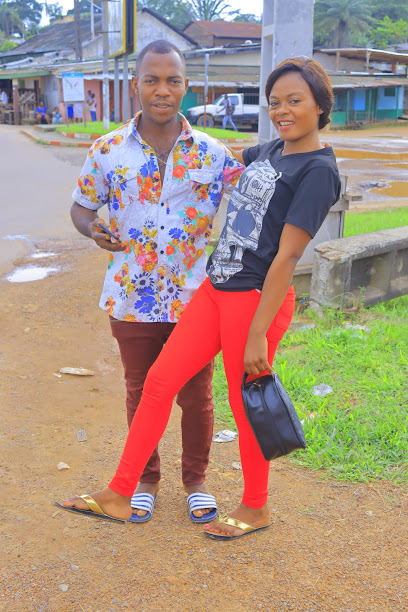
Prix gagnant3
Explore the vibrant local culture at the captivating store in Lambarene, where unique crafts meet warm hospitality.
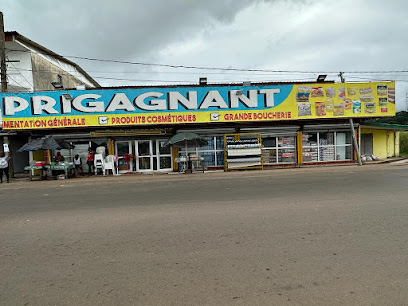
Baba Ould Taif
Experience the vibrant local culture at Baba Ould Taif, a grocery store in Lambarene offering fresh produce and unique Gabonese ingredients.

Essential bars & hidden hideouts
Le Refuge
Experience the charm of Le Refuge, where comfort meets local culture in the heart of Lambarene, Gabon. A tranquil escape awaits you.
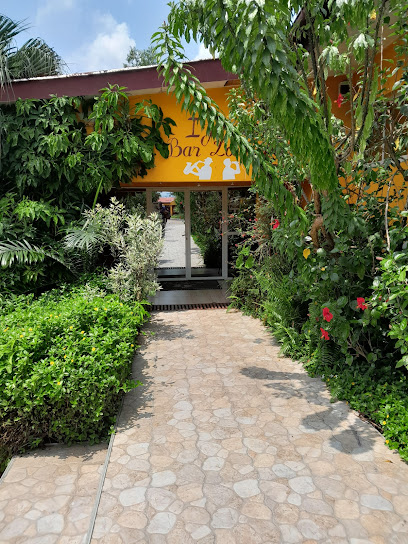
Ogooue Palace
Discover the elegance and tranquility of Ogooue Palace in Lambarene, where comfort meets the rich culture of Gabon.

On isaac Service Station (ENGEN)
Discover Lambarene from On Isaac Service Station, your essential stop for fuel, refreshments, and local culture.
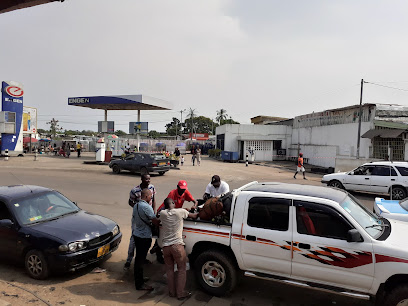
Hotel Ozigo
Discover comfort and tranquility at Hotel Ozigo in Lambarene, a perfect base for exploring Gabon's natural beauty and vibrant culture.
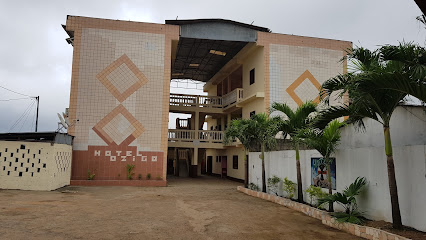
Auberge Biyoghé
Discover the charm of Lambarene at Auberge Biyoghé, your cozy lodging getaway in Gabon, blending local culture with modern comfort.
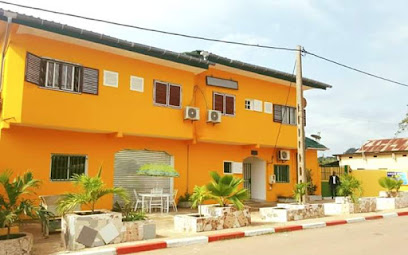
Solf Hôtel Restaurant et Bar
Discover the vibrant flavors and cozy atmosphere of Solf Hôtel Restaurant et Bar in Lambarene, where local culture meets comfort.
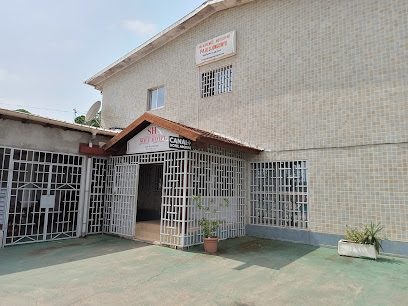
Les J. B.
Experience the warmth of Lambarene at Les J. B., where rich coffee and cozy ambiance await every visitor.
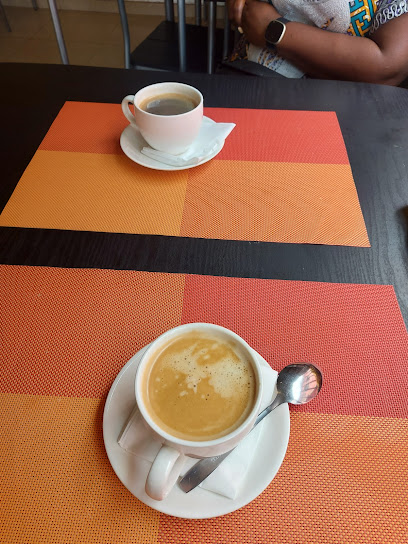
Le Carpe Diem Motel Bar Restaurant
Discover the vibrant flavors of Gabon at Le Carpe Diem Motel Bar Restaurant, a must-visit culinary gem in Lambarene for tourists and locals alike.
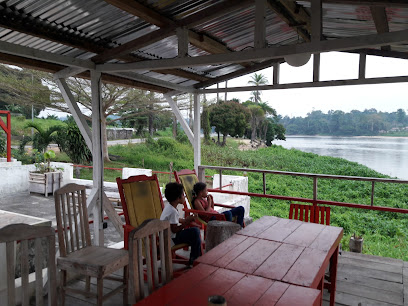
Solf Hotel
Experience the essence of Gabon at Solf Hotel, where comfort meets local culture in the heart of Lambaréné.
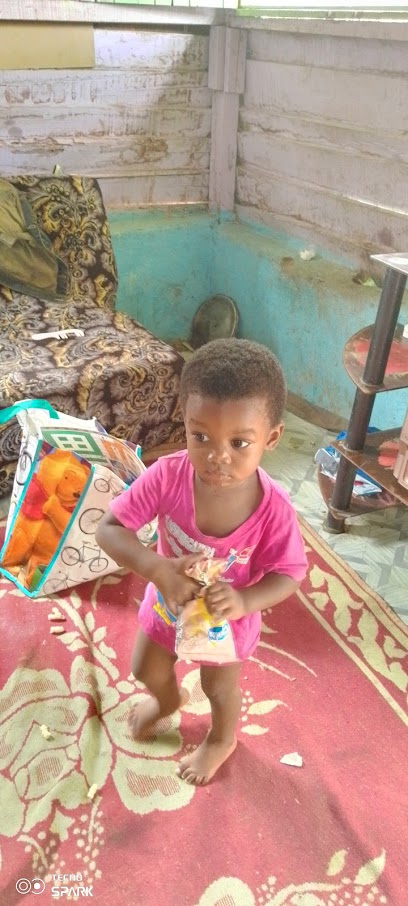
Glass Hammer Ltd.
Discover the historical significance of Glass Hammer Ltd., an archaeological site in Lambarene, Gabon, where the past comes alive through captivating artifacts.
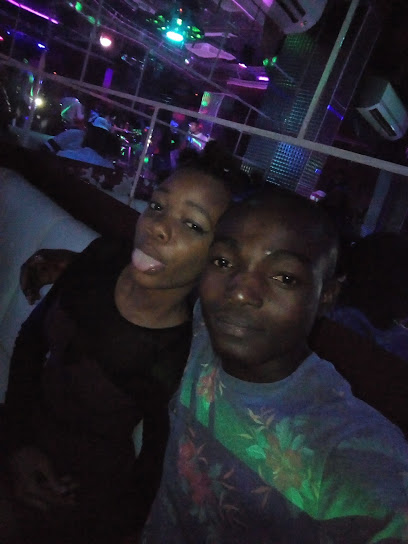
KŌNØHÄ VILLAGE
Discover relaxation at KŌNØHÄ VILLAGE in Lambarene, a serene lounge blending local culture with comfort for the perfect escape.
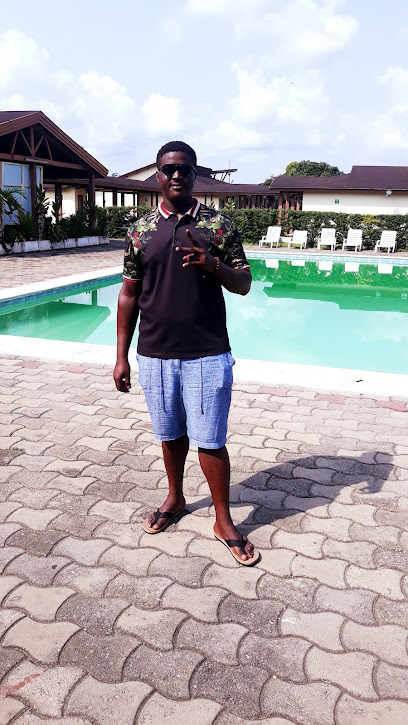
Restaurant la joie d'être ensemble
Experience the warmth of togetherness with exquisite local flavors at Restaurant la joie d'être ensemble in Lambarene.

PRIGAGNANT
Experience the vibrant local shopping scene at Prigagnant, Lambaréné's essential supermarket for all your travel needs.
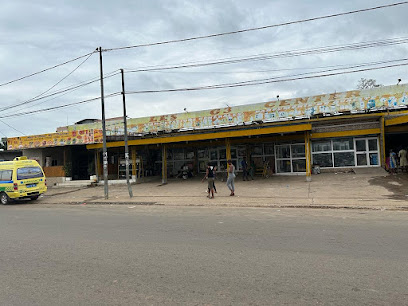
Les sirènes
Discover tranquility at Les Sirènes, a charming hotel in Lambaréné, perfect for relaxing and exploring Gabon's cultural gems.

Embouchure bar
Experience the lively atmosphere of Embouchure Bar in Ndjole, where local flavors and vibrant nightlife come together for an unforgettable evening.
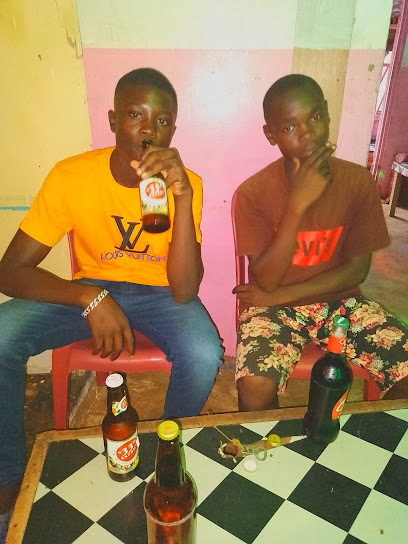
Local Phrases
-
- HelloMbolo
[m-boh-loh] - GoodbyeOyé
[oh-yeh] - YesEeh
[eh] - NoM'bwé
[mm-bweh] - Please/You're welcomeAmen
[ah-men] - Thank youMwêna
[mweh-nah] - Excuse me/SorryMvôli
[m-voh-lee] - How are you?O mômê?
[oh moh-meh?] - Fine. And you?M'vô mômê? O mômê?
[mm-voh moh-meh? oh moh-meh?] - Do you speak English?O nâ ngôlô nge?
[oh nah n-goh-loh n-geh?] - I don't understandA do fê
[ah doh feh]
- HelloMbolo
-
- I'd like to see the menu, pleaseNzôna a dzê menu, amen
[n-zoh-nah ah zeh menu, ah-men] - I don't eat meatA do bwê n'nyama
[ah doh bweh n-nyah-mah] - Cheers!Nzôlô
[n-zoh-loh] - I would like to pay, pleaseNzôna a dzê kongô, amen
[n-zoh-nah ah zeh kong-oh, ah-men]
- I'd like to see the menu, pleaseNzôna a dzê menu, amen
-
- Help!Mvôli!
[m-voh-lee] - Go away!Zi!
[zee] - Call the Police!Yîstêm mô ngâli!
[yee-stem moh ngah-lee] - Call a doctor!Yîstêm mô n'gôlô!
[yee-stem moh n-goh-loh] - I'm lostA do bwê bôkô
[ah doh bweh boh-koh] - I'm illA do bwê yê
[ah doh bweh yeh]
- Help!Mvôli!
-
- I'd like to buy...Nzôna a dzê...
[n-zoh-nah ah zeh...] - I'm just lookingA do bwê nyô
[ah doh bweh nyoh] - How much is it?Nzôna a dzê...
[n-zoh-nah ah zeh...] - That's too expensiveNzôna a dzê...
[n-zoh-nah ah zeh...] - Can you lower the price?Nzôna a dzê...
[n-zoh-nah ah zeh...]
- I'd like to buy...Nzôna a dzê...
-
- What time is it?Nyôlô na njê?
[nyoh-loh nah n-jeh] - It's one o'clockNyôlô na mînâ mô
[nyoh-loh nah mee-nah moh] - Half past (10)Njê ma n'kôlô (10)
[n-jeh mah n-koh-loh (dix)] - MorningNyêmi
[nyeh-mee] - AfternoonNzômi
[n-zoh-mee] - EveningN'gondo
[n-gon-doh] - YesterdayNzô gê
[n-zoh geh] - TodayNzôni
[n-zoh-nee] - TomorrowNzôbi
[n-zoh-bee] - 1Mînâ
[mee-nah] - 2Mîvâ
[mee-vah] - 3Mînê
[mee-neh] - 4Mînâ na mîvâ
[mee-nah nah mee-vah] - 5Mînâ na mînê
[mee-nah nah mee-neh] - 6Mîvâ na mînâ
[mee-vah nah mee-nah] - 7Mîvâ na mîvâ
[mee-vah nah mee-vah] - 8Mîvâ na mînê
[mee-vah nah mee-neh] - 9Mînê na mînâ
[mee-neh nah mee-nah] - 10Mînê na mîvâ
[mee-neh nah mee-vah]
- What time is it?Nyôlô na njê?
-
- Where's a/the...?Nyôlô nyô...
[nyoh-loh nyoh...] - What's the address?Nyôlô nzo...
[nyoh-loh n-zoh...] - Can you show me (on the map)?O nâ fê nyô (na mâp)?
[oh nah feh nyoh (nah map)] - When's the next (bus)?Nyôlô kô mô (mbus)?
[nyoh-loh koh moh (bus)] - A ticket (to ....)Nyôlô na mâmbu (dzê ....)
[nyoh-loh nah mahm-boo zeh]
- Where's a/the...?Nyôlô nyô...
History of Lambaréné
-
Lambaréné has long been home to the indigenous Punu and Fang ethnic groups, who settled in the region centuries ago. These tribes lived in harmony with the lush, tropical environment, relying on fishing, hunting, and agriculture for their livelihoods. The local culture is rich with traditional music, dance, and folklore that have been passed down through generations.
-
The arrival of European explorers in the late 19th century marked a significant turning point for Lambaréné. French explorers, including Pierre Savorgnan de Brazza, ventured into the region, leading to the establishment of French colonial rule. Lambaréné became an important administrative center, with the construction of various colonial buildings and infrastructure that still stand today as historical landmarks.
-
One of the most notable chapters in Lambaréné's history is the arrival of Dr. Albert Schweitzer in 1913. Schweitzer, a renowned theologian, musician, and physician, founded the Albert Schweitzer Hospital, which provided much-needed medical care to the local population. His humanitarian work earned him the Nobel Peace Prize in 1952, and the hospital remains a symbol of his enduring legacy, attracting visitors from around the world.
-
Gabon gained independence from France in 1960, and Lambaréné began to evolve as part of the new nation. The city became a focal point for regional development, with improvements in infrastructure, education, and healthcare. The Albert Schweitzer Hospital continued to play a crucial role in the community, adapting to modern medical practices while preserving its historical significance.
-
Lambaréné is a vibrant cultural hub, hosting numerous festivals and events that celebrate the rich heritage of the region. The 'Fête des Cultures' is a particularly notable event, showcasing traditional music, dance, and crafts from the diverse ethnic groups in the area. Visitors can immerse themselves in the local way of life, experiencing the warmth and hospitality of the Lambaréné people.
-
Today, Lambaréné is a thriving city that blends historical charm with modern amenities. The city is a gateway to the natural wonders of Gabon, including the Ogooué River and the surrounding rainforests. Eco-tourism is on the rise, attracting adventurers and nature enthusiasts who seek to explore the pristine landscapes and wildlife of the region. Lambaréné stands as a testament to the resilience and cultural richness of its people, offering a unique and enriching experience to all who visit.
Lambaréné Essentials
-
Lambaréné, located in central Gabon, is accessible by various modes of transportation. The closest international airport is Libreville Leon M'ba International Airport (LBV) in Libreville, approximately 250 kilometers away. From Libreville, you can take a domestic flight to Lambaréné Airport or opt for a scenic road trip via buses or rental cars. The journey by road typically takes around 4 to 5 hours, depending on traffic and weather conditions.
-
Within Lambaréné, taxis are the most common mode of transportation and are relatively affordable. For short distances, shared taxis (clandos) are available and offer a budget-friendly option. Motorbike taxis are also popular but ensure the driver provides a helmet for safety. While public buses are less frequent, they do connect various parts of the town. Renting a car can be convenient for exploring the area at your own pace, but be prepared for varying road conditions.
-
The official currency in Gabon is the Central African CFA Franc (XAF). Credit cards are accepted in some hotels, restaurants, and larger shops, but it is advisable to carry cash, especially for smaller establishments and markets. ATMs are available in Lambaréné, but it's wise to withdraw sufficient cash in Libreville before traveling. Be aware that not all ATMs may accept international cards.
-
Lambaréné is generally considered safe for tourists, but standard precautions should be taken. Avoid walking alone at night in unfamiliar areas and keep your belongings secure. Areas with higher crime rates targeting tourists are rare, but always stay vigilant and avoid displaying valuables openly. Stick to well-lit, populated areas, and use reliable transportation options.
-
In case of emergency, dial 1730 for police, 1300 for medical emergencies, and 1800 for fire services. The local hospital, Hôpital Albert Schweitzer, provides medical services and is equipped to handle emergencies. It is recommended to have travel insurance that covers medical emergencies. Pharmacies are available in town for over-the-counter medications and minor health issues.
-
Fashion: Do dress modestly, especially in public and religious sites. Lightweight, breathable clothing is recommended due to the humid climate. Religion: Do respect local customs and traditions. Remove your shoes when entering religious buildings. Public Transport: Do be polite and patient. Don't engage in loud conversations or eat on public transport. Greetings: Do greet people with a handshake or a nod. A friendly 'Bonjour' is customary. Eating & Drinking: Do try local dishes and accept food offerings graciously. Don't refuse hospitality, as it is considered impolite. Always use your right hand when eating or offering items.
-
To experience Lambaréné like a local, visit the bustling markets where you can buy fresh produce, spices, and handcrafted goods. Engage with the friendly locals who are often eager to share stories about the area's rich history and culture. Don't miss a visit to the Albert Schweitzer Museum to learn about the town's most famous resident. For a unique experience, take a boat ride on the Ogooué River, offering stunning views and a chance to see local wildlife.
Trending Landmark in Lambaréné
Nearby Cities to Lambaréné
-
Things To Do in Libreville
-
Things To Do in Mbini
-
Things To Do in Bitam
-
Things To Do in Ribeira Afonso
-
Things To Do in Kribi
-
Things To Do in Sao Tome City
-
Things To Do in Santo Antonio
-
Things To Do in Angolares
-
Things To Do in Trindade
-
Things To Do in Ebolowa
-
Things To Do in Guadalupe
-
Things To Do in Neves
-
Things To Do in Santa Catarina
-
Things To Do in Luba
-
Things To Do in Edea







